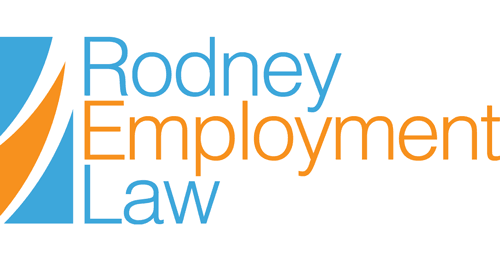COVID-19 UPDATE: Ontario Government Extends Infectious Disease Emergency Leave to January 2, 2021

The Infectious Disease Emergency Leave provisions initially slated to end on September 4, 2020, six weeks after the State of Emergency ended in Ontario, have been further extended until January 2, 2021. On May 29, 2020, the Ontario Government introduced O. Reg. 228/20: Infectious Disease Emergency Leave (‘IDEL”). This temporary provision under the Employment Standards Act, […]
#SorryNotSorry: Refusing to Apologize Does Not Constitute Grounds for Just Cause
In Hucsko v. A.O. Smith Enterprises, 2020 ONSC 1346, a long-service (20 years), senior-aged (62 years old) employee (the “Employee”) was subject to a just cause termination subsequent to the fall-out of a workplace harassment investigation. The workplace investigation was conducted by the Employer, after the Employee’s female co-worker complained that he had made sexually inappropriate […]
Ontario Court Of Appeal Once Again Confirms That Employment Agreements Must Read As A Whole
In Waksdale v. Swegon North America Inc., 2020 ONCA 391, an employee was terminated on a “without cause” basis after less than one (1) year of employment. His employer sought to enforce the termination clause in his Employment Agreement and provided him with two (2) weeks’ notice pursuant to the clause and the Ontario Employment […]
‘Saving Provisions’ Will Not Cure Your Deficient Termination Clause
Every year we analyze countless new cases where the courts have grappled with the enforceability or lack of enforceability in termination clauses. This is for good reason – an enforceable termination clause is likely the single-most important provision in an Employment Agreement. An enforceable termination clause that restricts an employee’s rights upon termination to the […]
Independent Contractor or Dependent Contractor – The Current State
The distinction between independent contractors and dependent contractors was further clarified in the Court of Appeal’s recent decision in Thurston v. Ontario (Children’s Lawyer). In this case, a lawyer performed services for the Defendant under a fixed term contract over a period of 13 years. Each contract that she signed required the Plaintiff to apply […]
Stage 2 of Ontario’s Framework for Reopening the Province
Stage 2 of Ontario’s Framework for Reopening the Province On June 8, 2020, Premier Doug Ford announced that Ontario will be taking a regional approach to move into stage 2 of reopening the province. Specifically, many regions at the outskirts of the Greater Toronto Area (GTA) will be able to move into stage 2 as […]
Employment Standards Act Regulation
Employment Standards Act Amendment – June 2, 2020 Reg. 228/20, Infectious Disease Emergency Leave On May 29, 2020, the Ontario Government passed a Regulation under the Ontario Employment Standards Act, 2000 (the “ESA”) which confirms that, among other things, temporary reductions and/or changes in hours/wages due to COVID-19, or temporary layoffs due to COVID-19 that […]
Independent Contractor or Dependent Contractor – The Current State
The distinction between independent contractors and dependent contractors was further clarified in the Court of Appeal’s recent decision in Thurston v. Ontario (Children’s Lawyer). In this case, a lawyer performed services for the Defendant under a fixed term contract over a period of 13 years. Each contract that she signed required the Plaintiff to apply […]
‘Saving Provisions’ Will Not Cure Your Deficient Termination Clause
Every year we analyze countless new cases where the courts have grappled with the enforceability or lack of enforceability in termination clauses. This is for good reason – an enforceable termination clause is likely the single-most important provision in an Employment Agreement. An enforceable termination clause that restricts an employee’s rights upon termination to the […]
Resignations Must Be ‘Clear’ and ‘Unequivocal’
Throughout the past year, several decisions have consistently illustrated that employers must exercise extreme caution when receiving and responding to employee resignations. The overarching theme that the courts repeatedly confirmed was that employee resignations, retirements or job abandonments must be clear and unequivocal. Furthermore, the court reiterated that the onus is on the employer to […]
